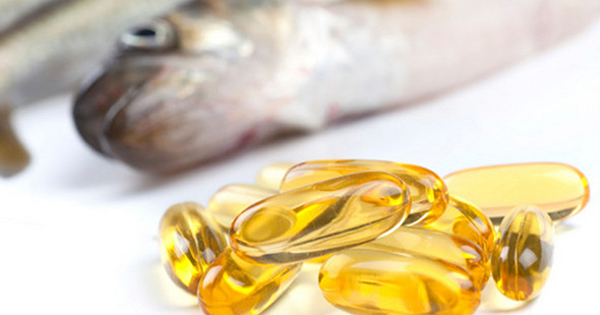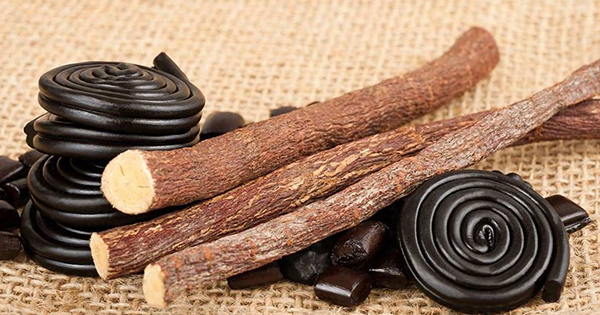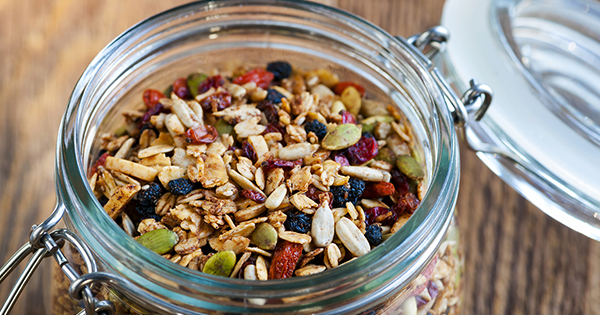3. Reduce or Eliminate Alcohol

If you are already manifesting signs of adrenal dysfunction, cut the alcohol. Of course, alcohol stresses the liver, kidneys, and adrenals and can disrupt sleep. The substance also affects hormone production and neurotransmission. (7)
4. Ditch the Sweets

Refined sugar is the bane of human existence, stressing every function in your body. When it comes to the adrenal glands, cortisol automatically elevates blood sugar to allow for quick energy in reaction to stress. Eating or drinking sweets further raises blood sugar, then insulin production goes into overdrive, with its additional health implications, like diabetes and related damage.
5. No More Microwave Oven

Microwaves change the molecular structure of foods, releasing free radicals. In any case, anything touched by a microwave immediately becomes foreign to the body. Processed foods contain chemicals that will further tax your endocrine system. Best to use the microwave oven as a box only for storage or dispose of it altogether (safely) and make more room for your cookbooks.
6. Swap Out Hydrogenated Oils

Vegetable oils are processed in such a way as to make them harmful. When heated, they release aldehyde (a known neurotoxin) and contain more omega-6 fatty acids than you need. In addition, most canola, corn, and soy in North America are genetically modified. Instead, opt for healthy fats like coconut, avocado, sesame, and olive.
7. Ashwagandha

This adaptogenic herb used in Ayurvedic medicine is known to help us respond to stress and balance hormones and blood sugar level. It is truly a treat for each adrenal gland.
An Indian study in 2008 found that “WSE [Withania Somnifera Extract] reduces experiential feelings of stress and anxiety at all dosage levels tested…all WSE-treated groups showed improvement in stress and anxiety scores…as a result of participants feeling less fatigue, flushing, perspiration, loss of appetite, headache and muscle pain, feelings of impending doom, palpitations, dry mouth, sleeplessness, forgetfulness, irritability and inability to concentrate…WSE’s therapeutic activity may be attributed, at least in part, to its effect on the hypothalamic-pituitary-adrenal axis, which regulates serum cortisol concentration.” (8)
You can find ashwagandha in tea, tinctures, and capsules in health food stores, online, or in an ethnic Indian store.
8. Holy Basil

This common herb reduces cortisol levels and regulates plasma corticosterone, promoting balance to the adrenal glands. By fighting the physiological effects of stress, holy basil protects your hypothalamus, pituitary gland, and adrenals (9).
9. Supplement with Fish Oil

A 2003 study found that the fatty acids contained in fish oil (eicosapentaenoic acid, EPA and docosahexaenoic acid, DHA) inhibit adrenal activation caused by mental stress by calming the central nervous system. (10) Moreover, fish oil fats nourish the brain and reduce neurochemicals that cause depression and irritability.
10. Magnesium

Deficiency of this nutrient is common. This “relaxation mineral” reduces the production of cortisol and is responsible for hundreds of bodily functions. Easy sources of magnesium include Epsom salt (add a little to that hot bath before bed to double the health benefit), dark leafy greens, pumpkin seeds, pecans, cashews, lentils, okra, bananas, Brazil nuts, and avocados. You can also make your own magnesium lotion for easy mineral absorption.
11. Licorice Root

Not the bright red twisty candies you buy at the movie theater. In reality, licorice root contains phytonutrient triterpenoid saponins (primarily glycyrrhizin) that regulate cortisol (11). However, small doses are best, as large amounts can affect kidney function and raise blood pressure. To use, licorice can be taken as a tea or in capsule form to support the adrenal cortex, regulate blood sugar, and balance hormones.
12. Hydration

Like getting enough sleep, this is a no-brainer for adrenal support. Dehydration is a common symptom of adrenal fatigue and it strains every other cell in your body.Water is great on its own, but it can seem a little boring after awhile. Stay hydrated by adding chilled herbal tea, a teaspoon of honey, a tablespoon of apple cider vinegar, or few slices of cucumber to change things up.
13. Hormone-Balancing Granola

Try the recipe below for a delicious adrenal boost.
- ⅔ cup Brazil nuts
- ⅔ cup pecans
- ⅓ cup pumpkin seeds
- 2 tablespoons chia seeds
- ⅓ cup ground flaxseeds
- ¼ cup coconut flakes, unsweetened
- ⅓ cup raisins
- 5 tablespoons coconut oil, melted
- 4 tablespoons maple syrup
- 1 teaspoon vanilla extract
- 2 teaspoons cinnamon
- Preheat oven to 180°F.
- Chop Brazil nuts and pecans in a food processor or by hand.
- Mix in a bowl with the seeds and coconut flakes.
- Combine melted coconut oil, maple syrup, vanilla extract, and cinnamon.
- Pour into the dry ingredients and mix until the nut and seed mixture is well coated.
- Place the granola in a single layer on a baking sheet lined with parchment paper.
- Bake for 30 minutes and remove from oven.
How it works: magnesium and selenium in the nuts and seeds regulate stress hormones and promote hormone balance. Meanwhile, coconut oil provides healthy fat for your brain and endocrine system. Maple syrup will satisfy a craving for sweets while providing antioxidants and minerals. Lastly, cinnamon is a natural anti-inflammatory agent.
Stress Relief for Adrenal Support
14. Yoga

A proven stress-reliever that can be done at home or in a group, yoga is great for your body and thoughts. In fact, gentle stretching in ancient prescribed poses grounds your energy and calms the mind. With exercises for beginners and masters alike, you can practice yoga at any time and reap its rewards. Click here for some starting poses.
15. Go Outside

Whether sunny or cloudy, the movement of the wind and the sight of natural surroundings foster calm and peace. Simply remove yourself from stressors by taking a walk in a park and allow your mind to rest or wander to other things. Go travel as often as you can and find a reason to go outside every day.
16. Space Out Your Workouts

Exercise increases dopamine and reduces cortisol. Whether you’re taking a low-impact walk or an intense spin class, you’ll enjoy increased blood and lymph flow and improved bodily processes. Above all, just make sure you don’t exercise within two hours of going to sleep and allow days of rest between strenuous workouts to allow your muscles time to recover.
Keep in mind that over-zealous exercise is counter-productive. In fact, it actually puts a strain on your adrenals and interferes with hormone production. So make sure to adjust your workout routine and not to push yourself too hard with gym exercises.
17. Consider Changing Your Lifestyle

If you suffer from adrenal insufficiency or fatigue, it is most likely because you are subjected to chronic stress. Accordingly, adjusting your diet and exercise regimen goes a long way to reducing stress.
Long-term stress relief, however, is imperative to staving off more serious health issues.
Here’s how to make a change:
- Adjust your sleep habits
- Do something you enjoy every day
- Confide in a friend or professional counselor
- Have a massage
- Constructively approach stressors and change what you can; sometimes even a small compromise can take the edge off
- Avoid negative people
- Cut yourself some slack and try to find something positive in every challenge
Adrenal Insufficiency Recovery Time
So how long does it take to heal your adrenal glands? Just as you didn’t find yourself in your current situation overnight, so the road to recovery also takes time. Therefore, a rough estimate depends on how long your adrenals have been over-taxed.
With lifestyle and diet changes, you can expect the following recovery time:
- 6-9 months for minor adrenal stress
- 12-18 months for moderate adrenal fatigue
- Up to 24 months for severe adrenal insufficiency
While it sounds like a very long time, you’ll feel the effects of proper adrenal support in a much shorter period. Give yourself ( and your adrenals) a little TLC. You earned it.

